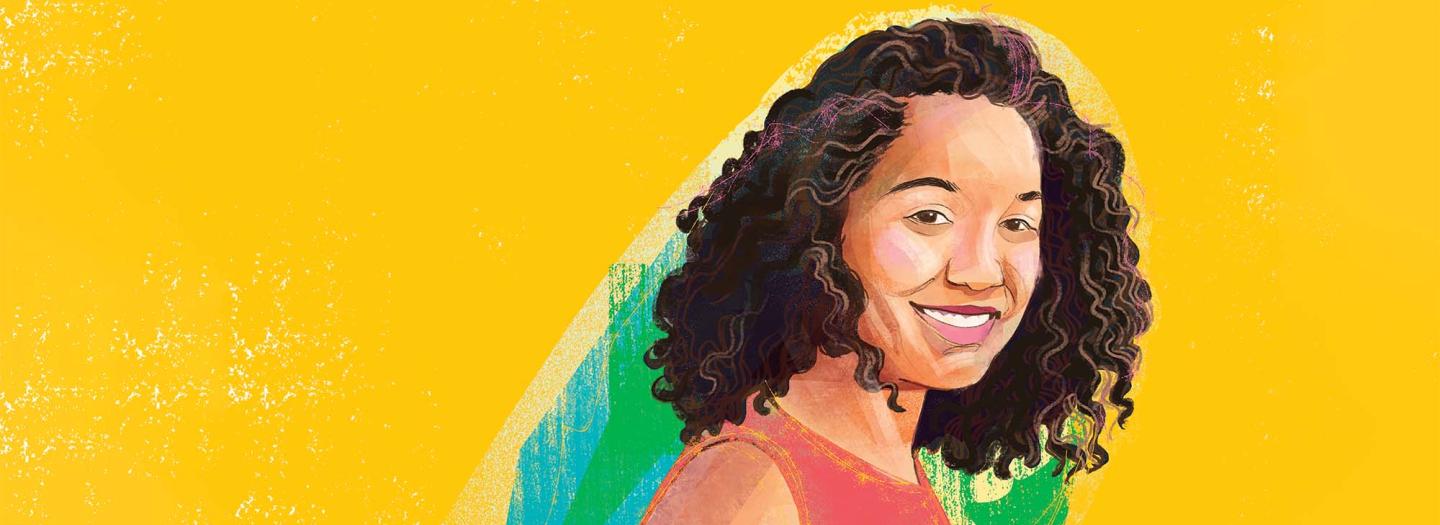Amber Bell, MS ’19, CNM : Returning an age-old vocation to its roots
Bell is helping UCSF re-diversify the midwifery profession.

Illustration: John Jay Cabuay
Bell is helping UCSF re-diversify the midwifery profession.
